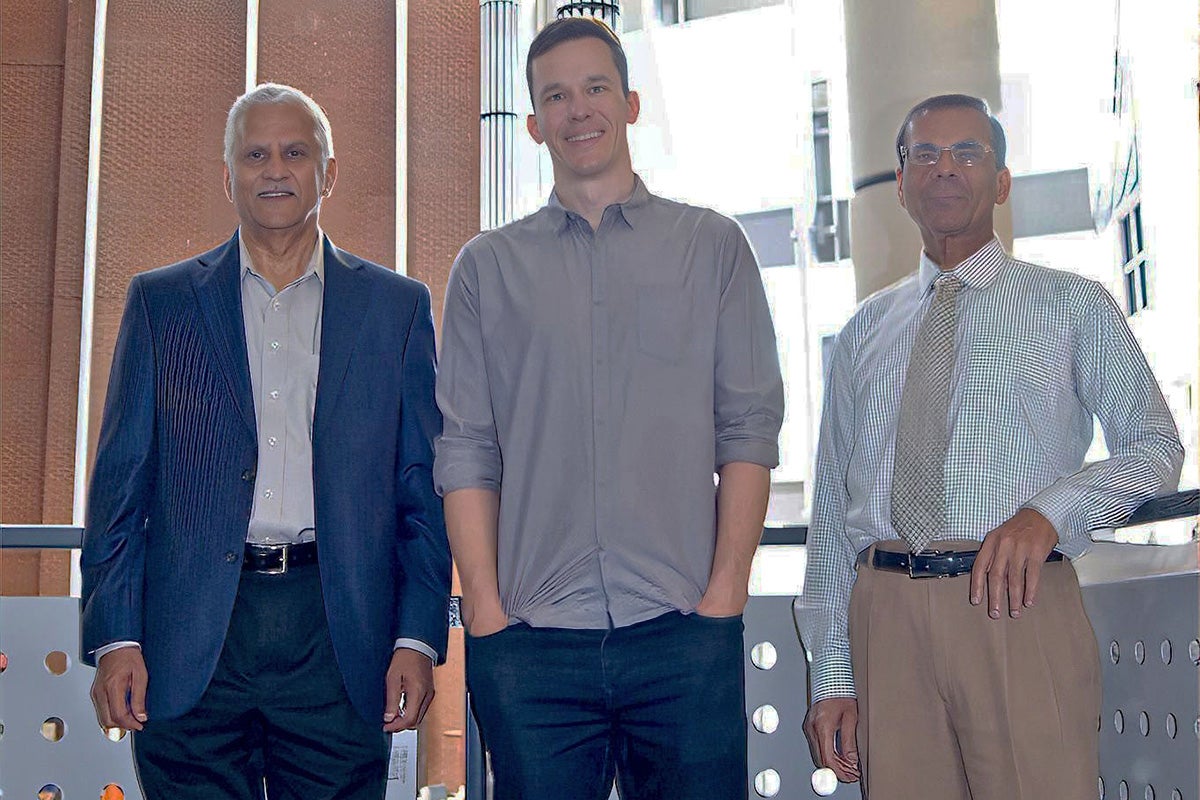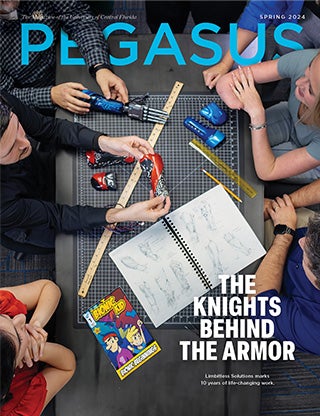A team of researchers from the ������ϲʿ������ and the University of Delaware’s Institute of Energy Conversion has received a $1.5 million grant from the U.S. Department of Energy Solar Technologies Office to develop a novel metallization process that could improve the efficiency and lower the cost of solar cells, making solar energy more accessible to consumers.
The metallization process produces the metal contacts that are placed on the surface of silicon solar cells to harvest electrical currents. Silver is typically used to manufacture the contacts due to its ability to withstand high temperatures without oxidizing, but it’s very expensive to use.
“Silver constitutes some of the highest costs to producing photovoltaic cells, and the photovoltaics industry is expected to consume 20% of the annual global silver supply by 2027,” says Kristopher Davis, the project’s principal investigator and a UCF associate professor of . “Copper is less expensive and also has a low electrical resistivity and is therefore a great potential alternative metal, but it has many challenges.”
One of those challenges is the fact that copper can oxidize in high temperatures, negatively impacting its conductivity. To solve this problem, the researchers will use lasers to heat the copper nanoparticles and reduce the possibility of oxidation.
“This approach has the potential to increase the efficiency of heterojunction solar cells and dramatically reduce their manufacturing costs,” Davis says. “This will hopefully help accelerate the adoption of solar energy by lowering the cost barriers that exist for some consumers.”
UCF researchers on the team also include Aravinda Kar, a professor in and Ranganathan Kumar, a professor of and the associate dean of research and administration for the .
The UCF team will collaborate with their counterparts at the Institute of Energy Conversion, led by research scientist Ujjwal Das.
The project is one of 19 selected for funding from President Biden’s Investing in America agenda, and one of eight projects that aim to reduce costs and increase efficiency of panel recycling processes through Biden’s Bipartisan Infrastructure Law.
About the Researchers
Davis joined UCF in 2017 as an assistant professor of materials science and engineering. He is a three-time graduate of UCF, having earned his Ph.D. and M.S. in optics and photonics and his B.S. in electrical engineering. He has joint appointments with the College of Optics and Photonics and the and is a member of the Resilient, Intelligent, and Sustainable Energy Systems (RISES) faculty cluster initiative.
Kumar joined UCF in 2003 as the chair of the Department of Mechanical and Aerospace Engineering and now serves as the associate dean for research and administration for the College of Engineering and Computer Science. He received his Ph.D. in theoretical and applied mechanics from the University of Illinois at Urbana-Champaign. He is a fellow of the American Society of Mechanical Engineering, and his research has been funded by NASA, the National Science Foundation and the Air Force Research Laboratory.
Kar is a professor in CREOL, The College of Optics and Photonics, and he received his Ph.D. from the University of Illinois at Urbana-Champaign. His research areas include laser-assisted manufacturing and materials processing as well as the design and processing of semiconductor materials and photovoltaic cells. He has won several awards, including the Arthur L. Schawlow Award from the Laser Institute of America (LIA). He is a fellow of LIA, as well as the National Academy of Inventors.
About the Solar Energy Technologies Office
The U.S. Department of Energy Solar Energy Technologies Office accelerates the advancement and deployment of solar technology in support of an equitable transition to a decarbonized economy.





